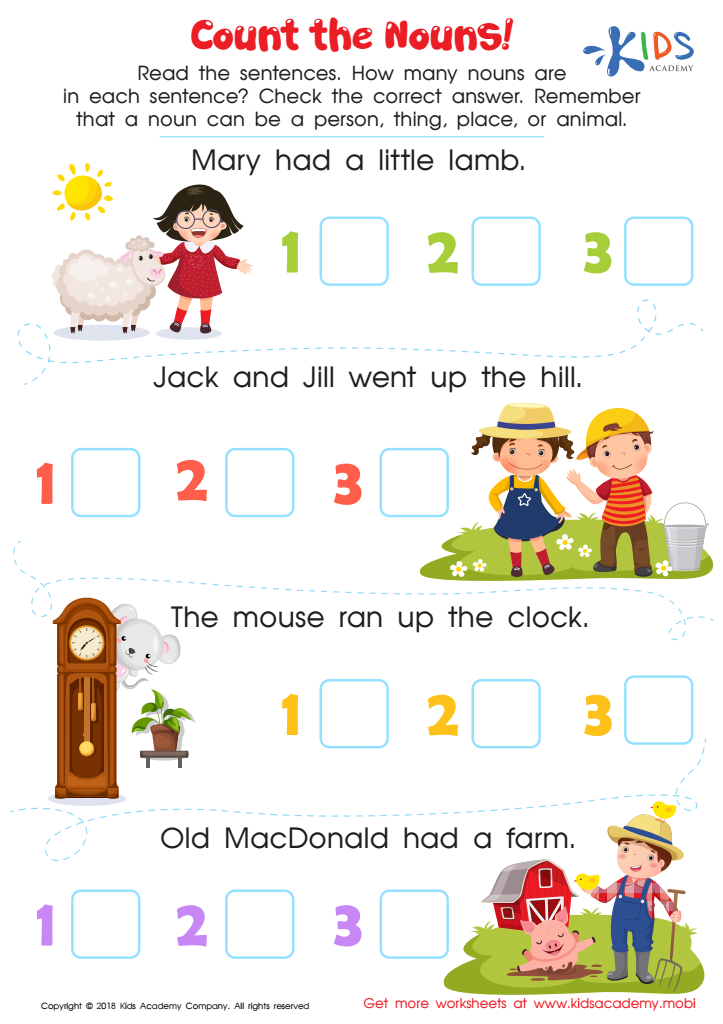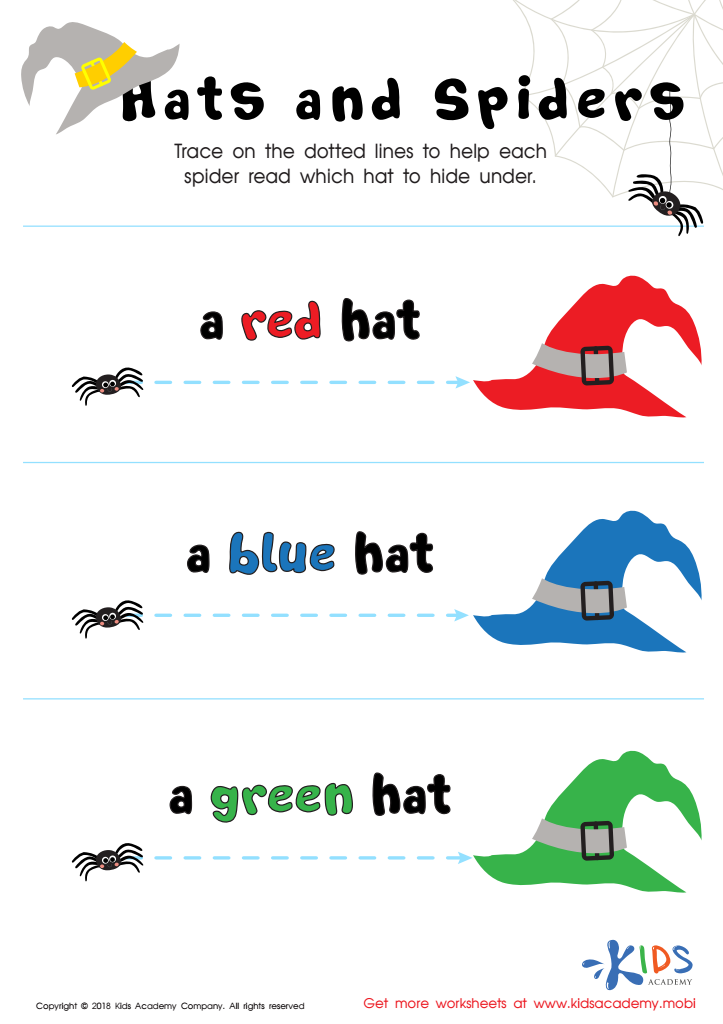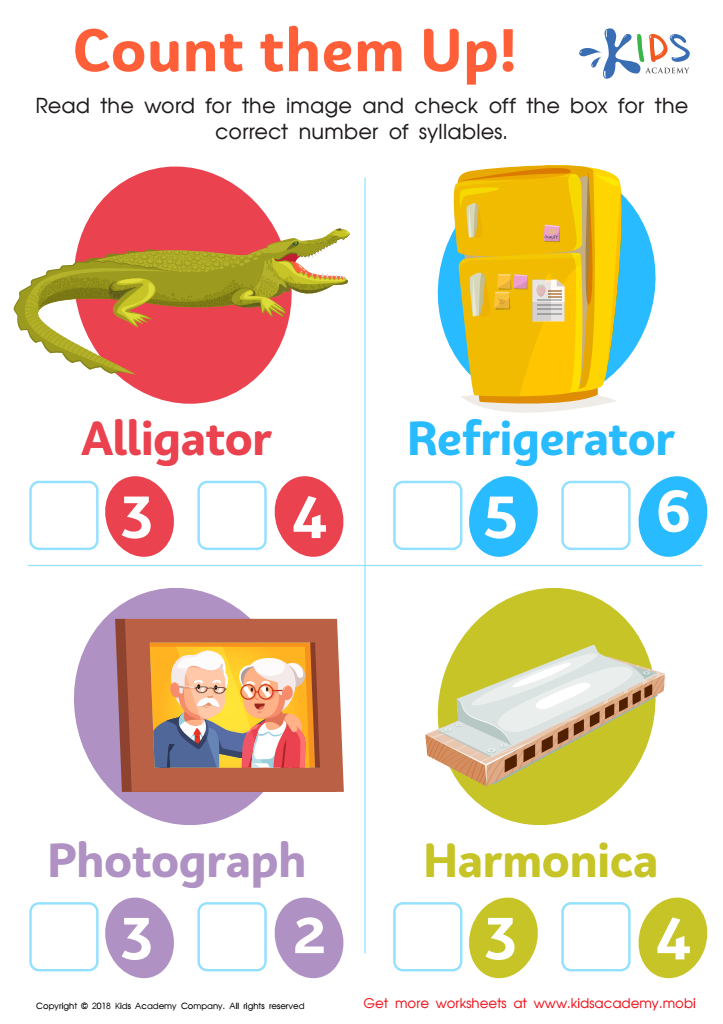Counting practice Writing Worksheets for Ages 3-8
4 filtered results
-
From - To
Enhance your child's counting skills with our engaging Counting Practice Writing Worksheets, designed for ages 3-8. These carefully crafted worksheets offer a fun and interactive way for young learners to develop their number recognition and writing abilities. Kids will love tracing numbers, counting objects, and completing fun exercises that reinforce counting concepts. Each worksheet is designed to cater to various learning styles, ensuring that every child can thrive. With vibrant illustrations and age-appropriate challenges, your little ones will stay motivated while mastering essential counting skills. Download our Counting Practice Writing Worksheets today and watch your child's confidence soar!


Count the Nouns Worksheet


Read from Left to Right: Hats and Spiders Worksheet


Count Them Up Worksheet


Deer Tracing Winter Words Worksheet
Counting practice writing for children ages 3-8 is crucial for their cognitive and educational development. First, it lays the foundational skills for mathematics. By engaging in counting activities, children learn to recognize numbers, understand the concept of quantity, and develop fluency in simple arithmetic operations. This early exposure creates a solid base for more advanced mathematical concepts they encounter in later grades.
Moreover, counting practice writing enhances fine motor skills. As children form numbers and written counts, they gain essential control over writing tools, which is beneficial for their overall handwriting skills. This fine-motor development increases their dexterity and coordination, aiding in other academic tasks as well.
Additionally, counting practice promotes critical thinking and problem-solving. By counting objects, creating patterns, or solving simple equations, children learn to analyze situations and find solutions, fostering independence and confidence.
Lastly, it aids in language development. As children engage in counting activities, they learn to express numerical concepts verbally and in writing, enhancing their vocabulary and communication skills.
Overall, counting practice writing is a vital activity that supports holistic development, helping children to thrive academically and socially. Parents and teachers play a key role in facilitating these essential skills through engaging practices.
 Assign to My Students
Assign to My Students





















